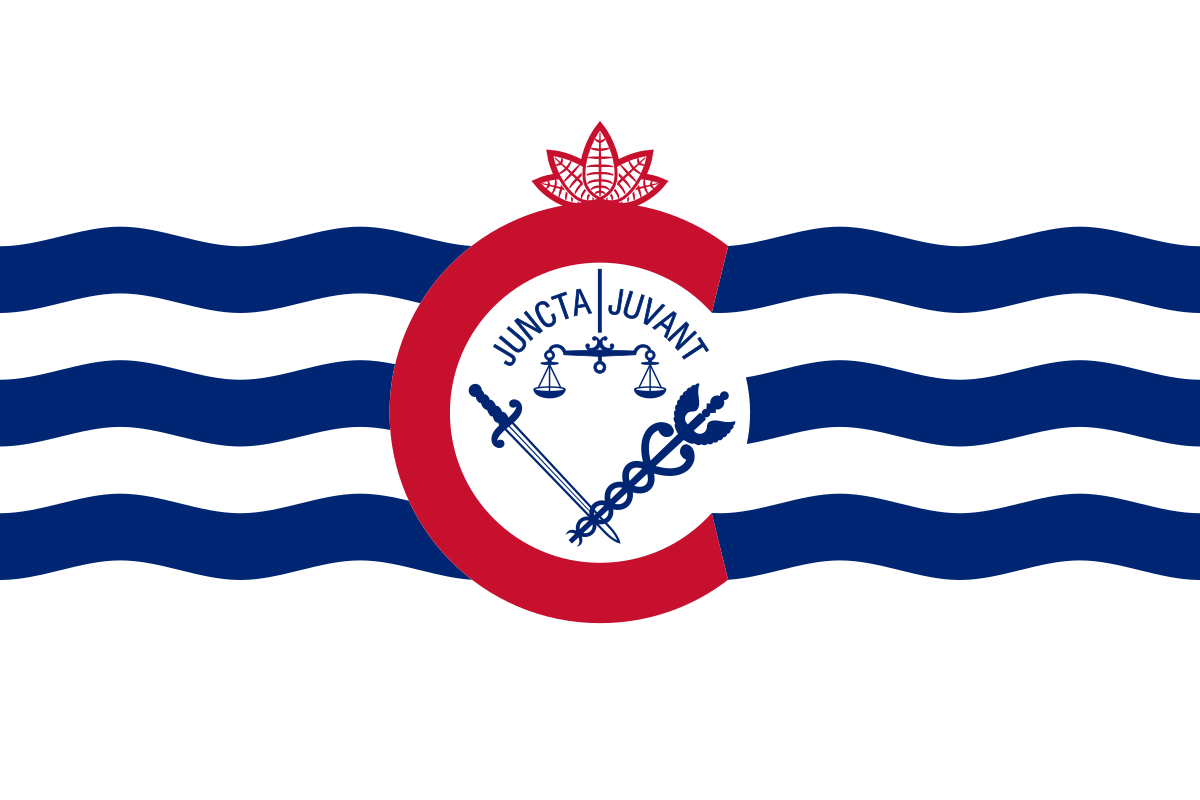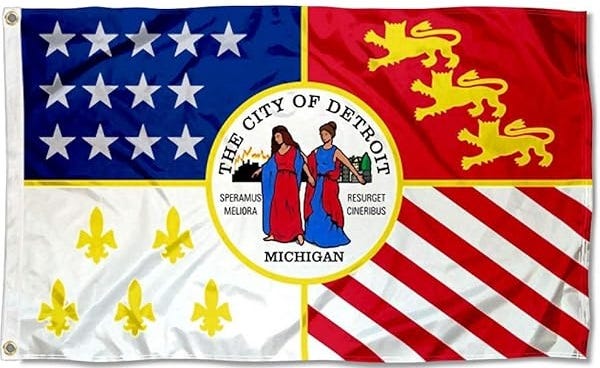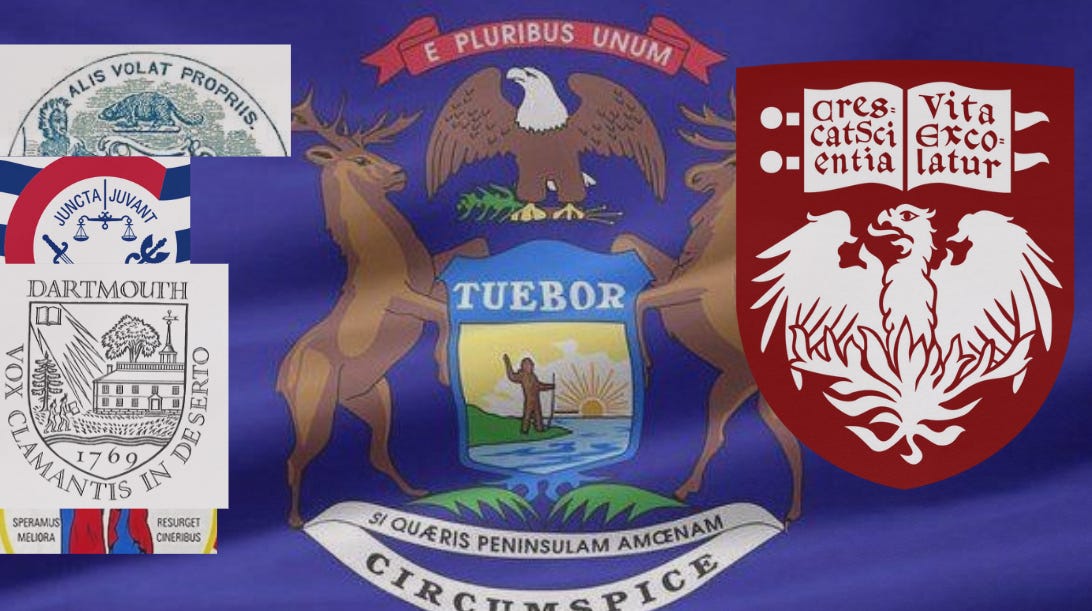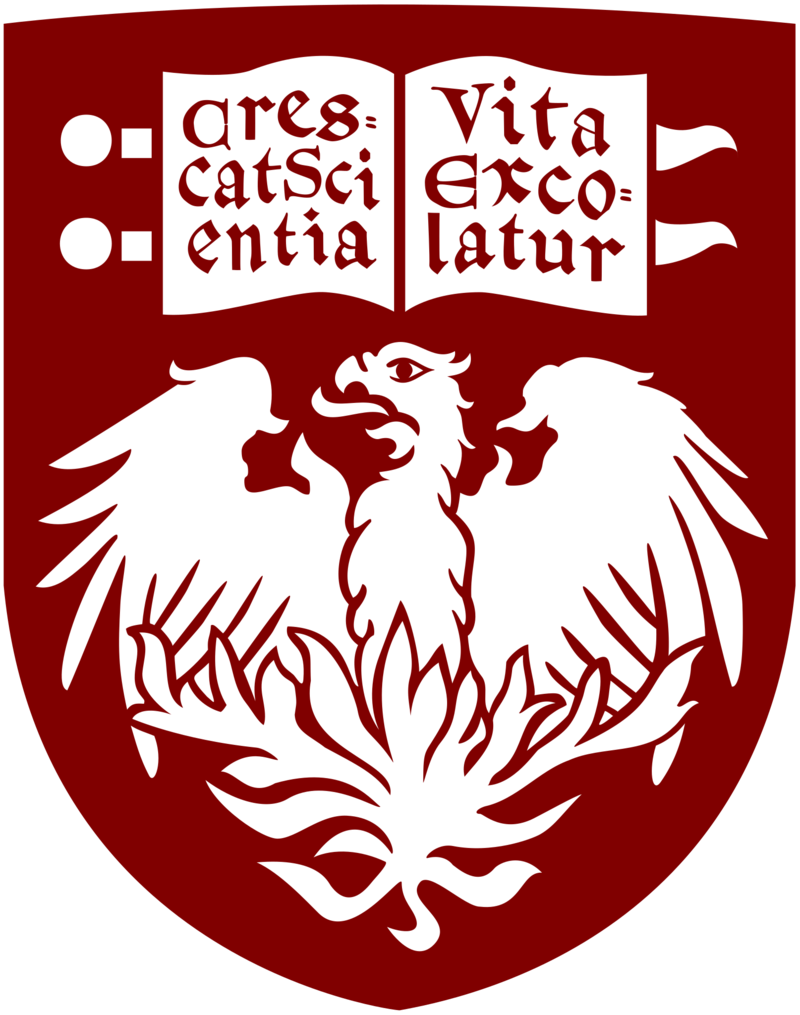Over the years, I’ve noticed quite a few Latin mottos, aphorism and slogans — on the side of a government building, in the coat of arms for a school, things like that. While people like myself who know their Latin can understand about half of them at first glance (because mottos tend to use simpler words and grammar), that’s probably not the case for more than 99% of the population. Most people in this day and age haven’t been lucky enough to learn Latin as part of their education.
So today, I though it would be fun to take a look at a few mottos in Latin, and to explain what they mean.
I’ve selected six mottos for this post. If people enjoy this, I might do more posts like this in the future — i.e., where I take a look at a handful of mottos or other phrases and provide a literal translation.
#1. Motto of the City of Cincinnati (Ohio): “Juncta Juvant”
This is the motto of the city of Cincinnati. It appears on the city’s seal as well as on the city’s flag.
But what does it mean? Well, this is one of the trickier ones to explain. A literal translation would be something like “Things yoked together are helpful,” or “United things provide aid.”

But, to be completely honest, neither of those translations sound all that great in English. So if we want to capture the sense of it in a phrase that’s more natural, we can say something like “Unity is important” or “Unity is key.”
Some looking online tells me it comes from a longer legal expression — “quae non valeant singula, iuncta iuvant” — which means something like, “Things which aren’t strong individually, become helpful when united.”
#2. The Two Mottos of the City of Detroit (Michigan): “Speramus Meliora” and “Resurget Cineribus”
This is an interesting one. These two phrases are sometimes presented as one motto with a semicolon separating them. Other times, they’re presented as two separate mottos.
Both phrases appear on the official seal of the city of Detroit, as well as its flag.
But what do they mean exactly? Well, it’s pretty straightforward.
“Speramus Meliora” means, “We hope for better things.”
“Resurget Cineribus” means, “It shall rise from the ashes.”

These Latin phrases were penned in the wake of the Great Fire of 1805, which devastated the city of Detroit. They express hope about rebuilding the city and recovering from the destruction of the fire.
The Detroit Historical Society attributes the Latin phrases to Fr. Gabriel Richard, a Catholic priest born in France who was a pastor in Detroit in the early 19th century. (At one point he served as a nonvoting delegate to Congress!) He established in Michigan a printing press, schools, a library, and more — including the institution that was a precursor to the University of Michigan.1
#3. Two Latin Phrases on The State Flag of Michigan: “Tuebor” and “Si Quaeris Peninsulam Amoenam, Circumspice”
That first word, “Tuebor,” means something like, “I will defend.” That’s easy enough.
The longer phrase, the state motto, appears on Michigan’s state seal — and, by extension, on its state flag.2 The translation is: “If you’re seeking a pleasant peninsula, look around you.”

The main part of the state of Michigan is a peninsula surrounded by the Great Lakes. Then you have the Upper Peninsula, which is also a peninsula surrounded by the Great Lakes. The motto is presumably talking about the lower peninsula, since the U.P. was added to the state at a later date.
The Michigan flag also features the phrase “E Pluribus Unum,” but I’m not talking about that phrase here because I’m presuming most Americans already know what it means: “Out of many, one.”
#4. Motto of the University of Chicago: “Crescat Scientia, Vita Excolatur”
This motto could be translated as, “May knowledge grow, may life improve.”
While that’s the literal translation, the sense of it, the implication of it, is that human life improves through a growth of knowledge. So a looser translation fleshing out that implication would be something like, “May knowledge grow, that life may improve.” But, then again, perhaps that’s altering the grammar to overemphasize something which the Latin merely implies.
Speaking of altering the grammar, here’s a loose translation often seen for this motto: “Let knowledge grow from more to more; and so be human life enriched.”
#5. Motto of the State of Oregon: “Alis Volat Propriis”
This translates to, “She flies by her own wings.” The Latin really emphasizes “her own” here, so the meaning is probably something about self-reliance and finding strength in one’s self.
#6. Motto of Dartmouth College (New Hampshire): “Vox Clamantis In Deserto”
This motto is, to my knowledge, the only one of the six derived from the Holy Bible. The phrase originates in the Book of Isaiah, but is applied to St. John the Baptist. In fact, Scripture says John the Baptist referred to himself as the fulfillment of that prophecy from Isaiah.3
The motto is not simply echoing the school’s Christian origins. It’s also alluding to how, in the early days of the college, it was — so to speak — on the edges of the British colonies at the time, being founded in 1769 as a colonial charter college.
If I may rant for a moment: far too many states in the union have the same basic, boring, ugly design for a flag: state seal on a blue background. New York, Kentucky, Michigan, Connecticut, Kansas, Idaho … the list goes on. Many of these flags began as battle flags for regiments fighting in the Civil War, then became enshrined as the official state flag. Why not upgrade the flag to something nicer — you know, something that looks like an actual flag?
Isaiah 40:3 reads, “The voice of one crying in the desert: Prepare ye the way of the Lord, make straight in the wilderness the paths of our God.”
In John 1:23, St. John the Baptist told priests and Levites who inquired about him, “He said: I am the voice of one crying out in the wilderness, make straight the way of the Lord, as said the prophet Isaias.”








